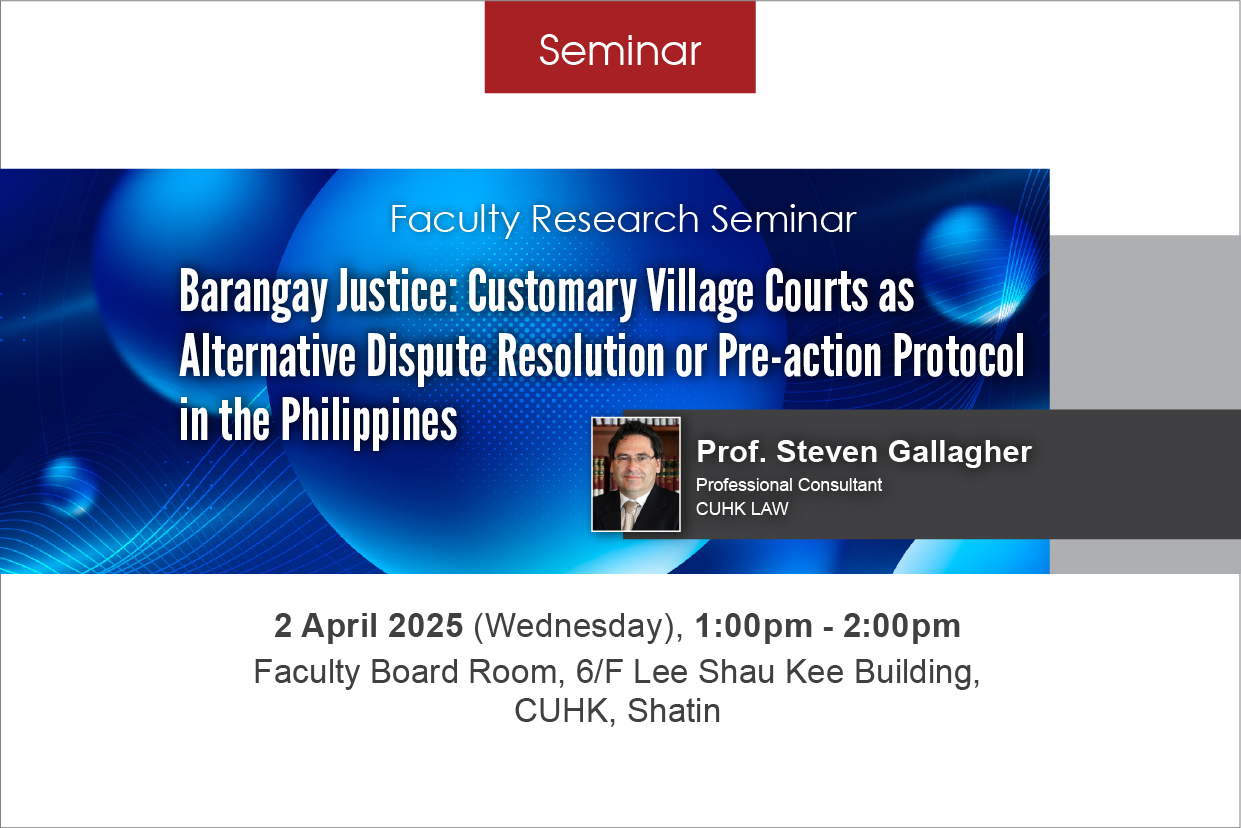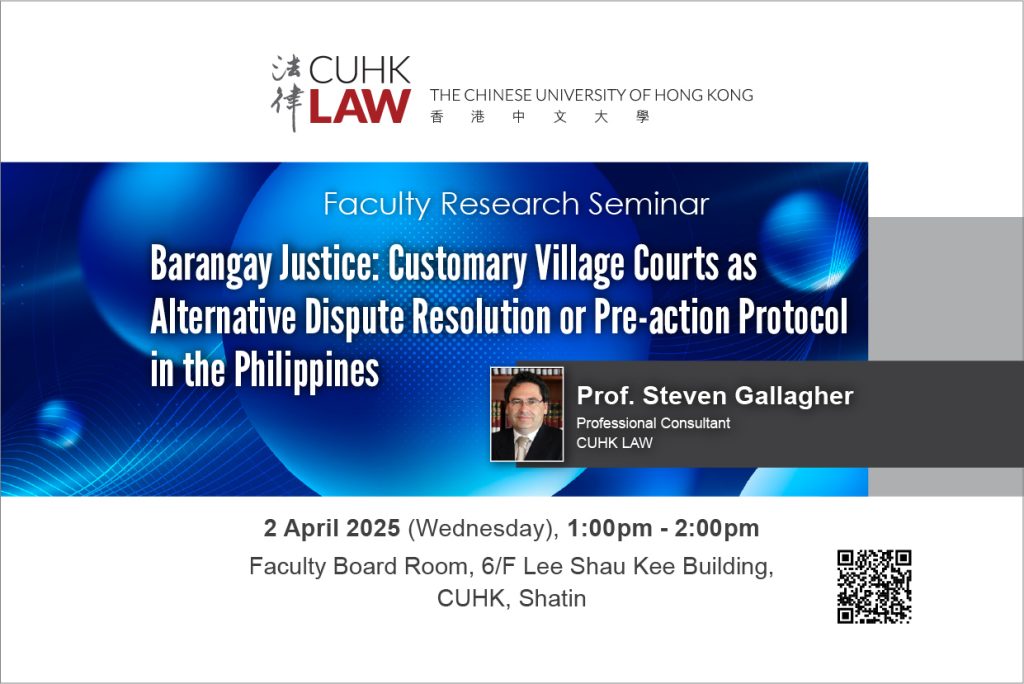On 11th June 1978, President Ferdinand Emmanuel Edralin Marcos Sr. of the Philippines issued Presidential Decree No. 1508. This established, “A System of Amicably Settling Disputes at the Barangay Level”. This was to be achieved by constituting within each barangay or village, the Lupong Tagapayapa (the “Lupong”), to help “amicably settle disputes among family and barangay members at the barangay level without judicial resources.” Although the appointment of this statutory body was a new initiative, the statute acknowledged that this was “the perpetuation and official recognition of the time-honored tradition”. Presidential Decree No. 1508 was repealed and revised by the Republic Act No. 7160, the Local Government Code of 1991, but the main principles of the Presidential Decree were maintained. This paper considers how Barangay Justice operates in the Philippines today and how much this modern system of justice owes to local custom and tradition. This consideration will include the scope of criminal and civil matters that may be “amicably settled” today according to statute and the extent to which this jurisdiction may be exceeded in practice. It will consider how the Lupong attempts to mediate, conciliate and at times arbitrate amicable settlements for allegations of serious infringements of civil rights and the perpetration of criminal acts. The paper will also consider whether President Marcos’s Decree has managed, as one of its stated purposes, to “preserve and develop Filipino culture and to strengthen the family as a basic social institution”.
About the Speaker:
Prof. Steven Gallagher , Professional Consultant, CUHK LAW.
Register here by 12 noon (HKT), 1 April 2025 to attend the seminar.


0 Comments